Great leaders are good readers
<p>Every year on April 23, Catalonia celebrates its patron, Saint George, known locally as<strong> Sant Jordi</strong>, with very special festivities where tradition dictates people exchange roses and books. We asked 13 noteworthy professionals from the sector to recommend a book they particularly enjoyed and want to share with the BioRegion community. </p>

Fiction, politics, entrepreneurship and science are some of the topics found in the books recommended by the BioRegion leaders Biocat contacted for this post. Some of them are new, just hitting the shelves; others could almost be considered cult classics in their genre. We hope you’ll find the perfect book to give or treat yourself with. Happy Sant Jordi!

Montse Barceló, Vice President Europe, Veristat
Recommends: “The Billion-Dollar Molecule”, by Barry Werth (Simon and Schuster, 1995)
Journalist Barry Werth looks at the early years of Vertex Pharmaceuticals, from when it was founded to its advances in the fight against HIV. “On my first trips to the Veristat headquarters in Boston, I was captivated by the immense size and quality of the biotechnology startup fabric,” remembers Montse Barceló. “At work, as in life, the opportunities available to you are conditioned by where you’re born and study, and this book is a clear example, using the case of Vertex and its founder Joshua Borger. I think the sector will love reading it!”
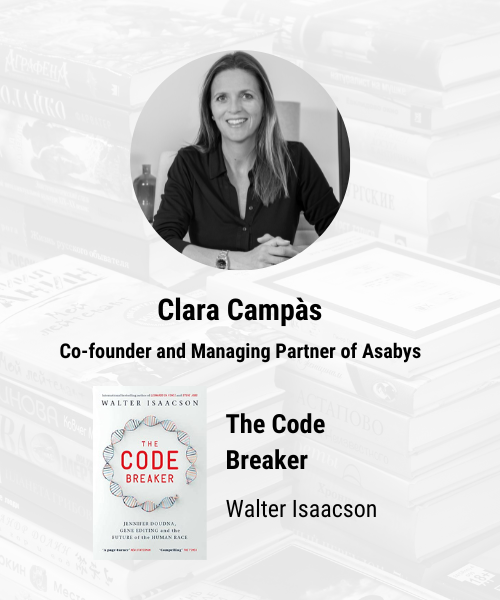
Clara Campàs, Co-founder and Managing Partner at Asabys
Recommends: "The Code Breaker", by Walter Isaacson (Simon & Schuster, 2021)
The fascinating story of Jennifer Doudna, Nobel Prize in Chemistry 2020, and one of the most important scientific breakthroughs of the last century. "As he has already done with Steve Jobs, Isaacson recounts Doudna's life and research, the CRISPR technology she co-discovered and, most importantly, reflects on the impact and ethics surrounding powerful technologies like this one. Entertaining and inspiring," says Campàs.

Ignasi Costas, Founder RCD
Recommends: “The Singularity Is Near: When Humans Transcend Biology”, by Ray Kurzweil (Penguin Books, 2006)
This book deals with the implications of quickly developing technology on the future of humanity where the line between humans and machines is blurred. “What’s good about this book is the fact that it not only looks at technological advances, but also reflects on the ethical implications of these innovations,” highlights Costas. “It considers the moral consequences of the singularity and exponential growth of technology in our society, and how the possibility of improving on human capacities and lengthening our lifespan could affect society and our perception of what it means to be human. The book invites you to reflect on how we can guide these innovations so they benefit all of humanity and don’t lead to greater social inequality, and reflect on the science and engineering community’s responsibilities for their development and the need to make human values part of the process.”
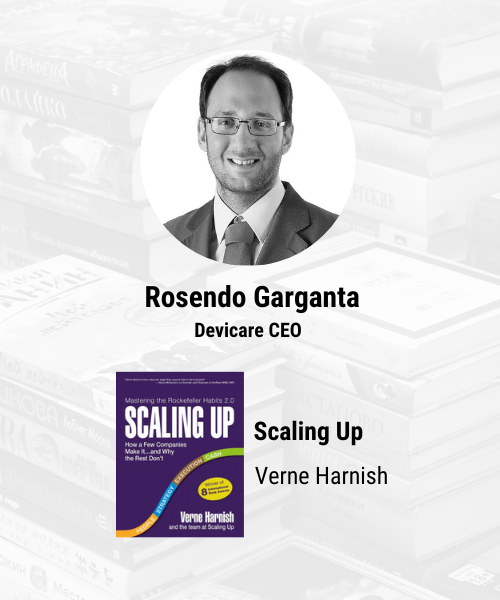
Rosendo Garganta, CEO, Devicare
Recommends: “Scaling Up”, by Verne Harnish (Gazelles, 2017)
The subtitle of the book is quite the declaration of intentions: “How a Few Companies Make It… and Why the Rest Don’t”. A classic business book for entrepreneurs. “I recommend this book for any companies that have reached the market and are in the growth phase,” notes Rosendo Garganta. “It is a highly practical book with examples, tools, tables and graphs that help founders and executive teams prepare their company to scale up, focusing on people, strategy, execution and money management.”
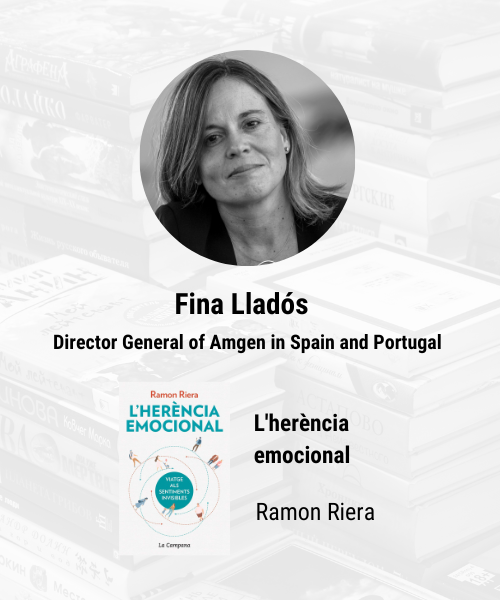
Fina Lladós, General Manager, Amgen Spain and Portugal
Recommends: “L’herència emocional”, by Ramon Riera (La Campana, 2019)
“L’herència emocional: Viatge als sentiments invisibles” (Emotional baggage: Journey to invisible feelings) explains which family and social ties condition our feelings from childhood. “The book makes you think about the importance of emotions in creating a society’s values and beliefs,” Lladós sums up. “An interesting journey, from a scientific point of view, through how emotional connections have the most influence on the solidity of knowledge and the transfer of values from one generation to the next.”
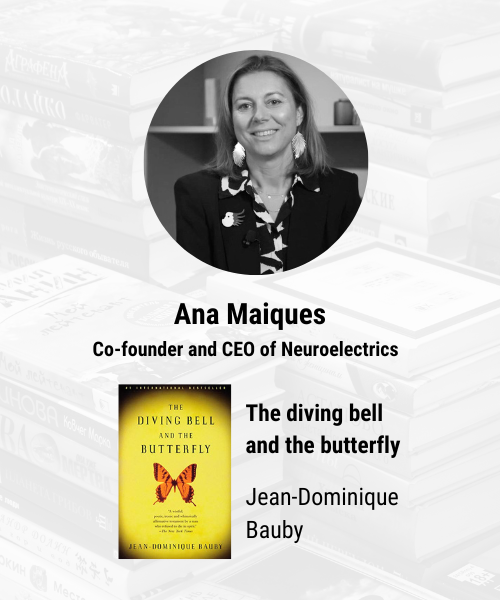
Ana Maiques, Co-founder and CEO, Neuroelectrics
Recommends: “L'escafandre i la papallona”, by Jean-Dominique Bauby (Columna, 1997)
This incredible autobiography was made into a film that won the Palme d’Or at Cannes in 2007. “The book tells the story of the editor-in-chief of Elle magazine, who had a massive stroke at the age of 43: it is amazing!” says Maiques. “Blinking his left eyelid in a letter code, the journalist shared first-hand how his functioning brain was trapped inside a paralyzed body. Highly relevant to our work at Neuroelectrics and the future of human-machine interfaces!”

Miquel Martí, CEO, Tech Barcelona
Recommends: “How the world really works”, by Vaclav Smil (DK, 2022)
This recent analysis of our future energy possibilities gives arguments for the fight against climate change. “I like the realistic view of the main challenges the planet is facing based on scientific analysis and data, setting dogmas aside,” explains Martí.
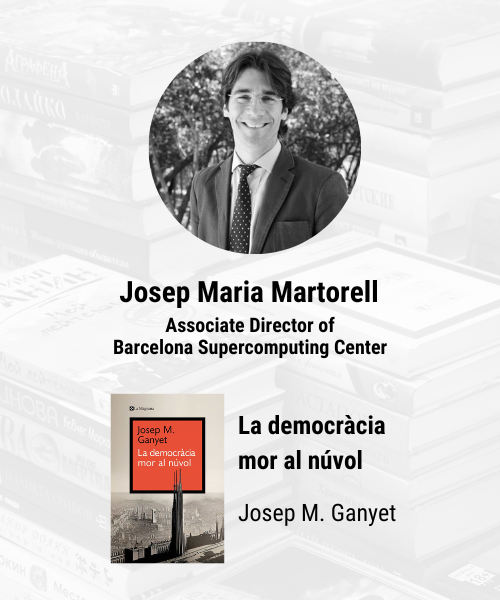
Josep Maria Martorell, Associate Director, Barcelona Supercomputing Center
Recommends: “La democràcia mor al núvol”, by Josep M. Ganyet (La Magrana, 2023)
This newly published book warns of the perils of espionage using new technology and the need for regulations that protect the individual rights of citizens. “The book is interesting, on a very current topic, and written in the form of short articles that make it very easy to read,” celebrates Martorell. “Exciting, interesting, sometimes funny... and it makes you think, because Pegasus is also there.”
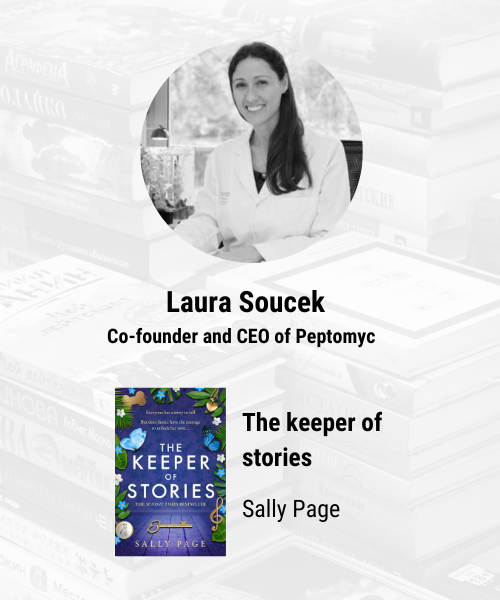
Laura Soucek, Co-founder and CEO, Peptomyc
Recommends: “The keeper of stories”, by Sally Page (One More Chapter, 2022)
This Irish novel about a cleaner from Cambridge who collects other people’s stories without ever sharing her own, has become a bestseller. “The author shows how each person we cross paths with has a story to tell, if we only take the time to listen,” highlights Soucek. “It has humor, sensitivity and optimism: a great way to relax after a long day at work!”
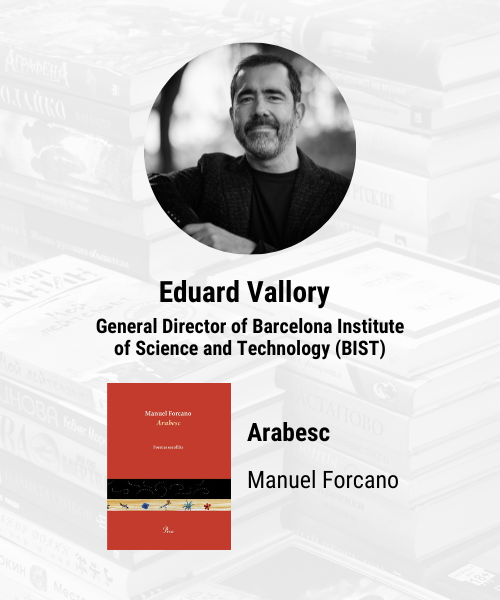
Eduard Vallory, General Director, Barcelona Institute of Science and Technology (BIST)
Recommends: “Arabesc”, by Manuel Forcano (Proa, 2022)
Love, desire, travel and the passing of time are some of the key elements of this author’s work, former director of Institut Ramon Llull. “Forcano’s poetry combines sensuality, delicacy, intellect and the beating heart of life, and this selection by the author makes us feel the jasmine blooming in spring,” highlights Vallory.
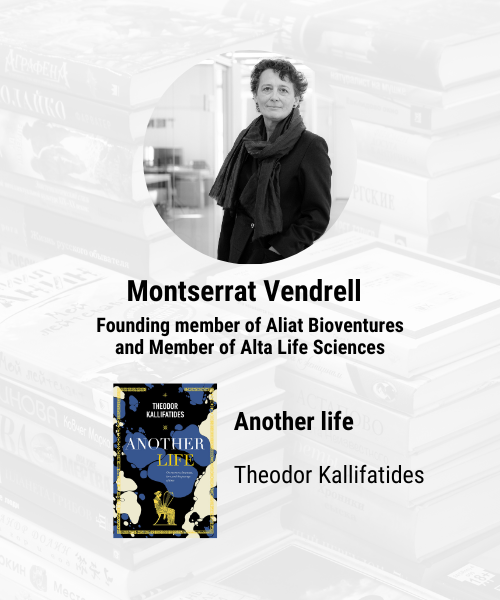
Montserrat Vendrell, founding partner, Aliath Bioventures and partner, Alta Life Sciences
Recommends: “Una altra vida, encara”, by Theodor Kallifatides (Galaxia Guttemberg, 2018)
At the age of 77, retired in Sweden, the author traveled to Greece and reflects in this work on the relationship between a meaningful life and a meaningful job, and how to reconcile oneself with aging, while analyzing trends in contemporary Europe. “I chose this book because the author gives a first-hand account of his process of coming to terms with aging and how, to do so, he sets off in search of what is truly meaningful, what inspires him, and it leads him to find the true essence of what makes us human,” notes Vendrell.
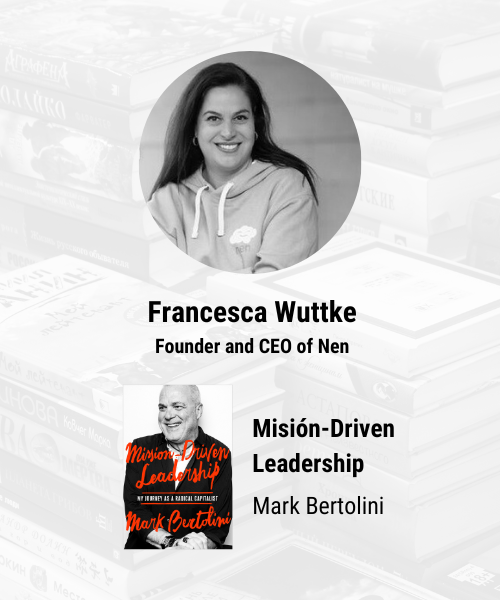
Francesca Wuttke, founder and CEO, Nen
Recommends: “Mission-Driven Leadership”, by Mark Bertolini (Currency, 2019)
The former chairman and CEO of health insurance company Aetna defines himself as a ‘radical capitalist’ in a book that reveals what he considers to be true leadership. Spoiler: it’s not just about financial results. "I like his no-nonsense approach to leadership though I doubt it made him very popular among his team. I was more moved by his purpose-driven leadership”.
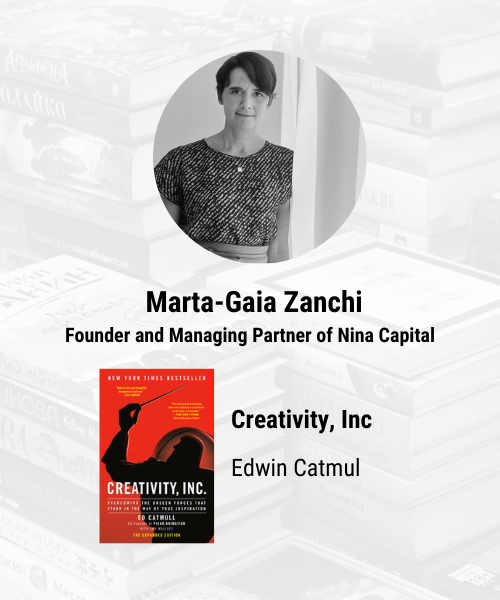 Marta-Gaia Zanchi, Founder and Managing Partner, Nina Capital
Marta-Gaia Zanchi, Founder and Managing Partner, Nina Capital
Recommends: “Creativity, Inc.”, by Edwin Catmull (Bantam, 2014)
The former president of Pixar and Walt Disney Animation Studios explains how to build a creative culture in work teams, using the example of the organization where some of the most popular animated films in history were created.” I am fascinated by the challenge of creating organizational structures that foster great decision-making ability in a team setting. I have always been a process-oriented manager. I have often contemplated the objection that processes stifle innovation and risk-taking in environments where teams must make high-stake decisions in light of limited information. On the contrary, I believe a great process is a necessary condition for any great decision. The problem is that most people don't know what a great process looks like and confuse organizational structure with communication structure. Creativity Inc shows better than most books that well-designed processes keep creative cultures vibrant, deliver the conditions to accept uncertainty and embrace risk, and channel the substantial energy it takes to effect change in the most productive and organizationally healthy way possible.
When we trust the process, we remember that we are resilient, that we are safe, and that our colleagues will not judge us for our failures but praise us for our ability to keep pushing the boundaries of our imperfect state of knowledge”.


